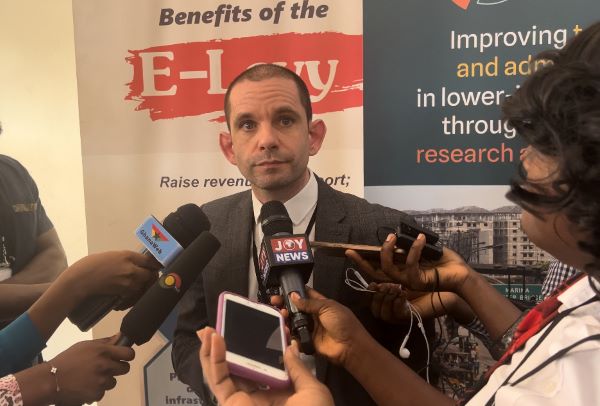
Project Director, Retail Finance at ISSER, Adadzewa Otoo has said that the chaotic and erratic implementation of digital finance tax (e-levy) across Africa is because policymakers failed to allow academia to lead the way with evidence-based data.
She is therefore calling on all tax policymakers in Africa to role back and allow academia to provide the necessary evidence-based data to guide the modelling and implementation of e-levy to ensure its success on the continent.
Adadzewa Otoo was speaking to at the opening of the two-day workshop jointly organized by the International Centre for Tax Development (ICTD) and the Ghana Revenue Authority (GRA), to discuss how to make make digital finance taxes successful and minimize its adverse impact on financial inclusion and the drive towards a cash-lite society.
So far, 15 African countries have implemented digital finance taxes, but none of them has been able to realize anything close to the projected receipts.
Ghana
In Ghana, for instance, the e-levy (electronic transfer levy), was expected to generate at least GHS1.46 billion in the first two months of its implementation. But it generated a paltry GHS93 million over the period, which is less than 10% of the projected revenue.
Indeed, when e-levy was first launched in Ghana in 2022 at 1.5%, the projected total revenue target was GHS6.96 billion. But due to the widespread public resistance, leading to its poor performance in the first two months, the target was revised downward by 91.2% to GHS611 million.
At the end of 2022, e-levy had collected GHS612.34 million, a little over the projected figure.
The main challenge with the e-levy implementation across Africa is that it was met with grave public resistance, and citizens toned down on the way they transfer money digitally, just to avoid the tax. Over time, though, people have returned to transferring money more and more and now the tax revenue levels are picking up gradually.
By the close of 2023, for instance, e-levy had generated GHS1.19 billion, 7.5% higher than the projected GHS1.11 billion for that year. It also indicates an 85.7% year on year growth compared to the to GHS612 million in 2022. So things are looking up gradually.
Adadzewa Otoo noted that the evidence clearly shows that mobile money tax or e-levy is here to stay, so it is important that its modelling and implementation is done right by ensuring those activities are evidence-based and data driven.
“The approach to mobile money tax cannot be like it is for traditional tax system simply because traditional tax systems are built on years of evidence and data gathering, whereas mobile money tax is completely new.
“This is why it is very critical that policymakers must involve academia from the onset so that they will have the benefit of the evidence-based data to model and implement the tax in a manner that ensure maximum revenue and minimum adverse effect on financial inclusion and the cash-lite society agenda,” she said.
According to her, collaboration with academia in the whole e-levy enterprise, should be a primary action for policymakers in Africa and not an afterthought, adding that the workshop is therefore intended to fix the challenges with implementation in the 15 countries, and also create a body of data that helps to prevent a reoccurrence of similar challenges in countries yet to roll out e-levy.

Co-Research Director at ICTD, Dr. Martin Hearson said their study showed that e-levy affects poor people more than it affects that rich, and that is a threat to financial inclusion. He said there is therefore a need to look at how to redesign it in the various countries to reduce the adverse effect on financial inclusion.
Politics
In Ghana, the two main political frontrunners in the forthcoming 2024 elections, John Dramani Mahama of the NDC and Dr. Mahamudu Bawumia of the ruling NPP have both made political promises to abolish e-levy if voted into power.
But Dr. Martin Hearson believes “e-levy is here to stay” in Ghana and in all Africa countries, so what it important is to redesign it in a way that ensures maximum revenue and minimum impact on financial inclusion and cash-lite society.







